Can Cats Eat Raw Bones? And if so, which kind?

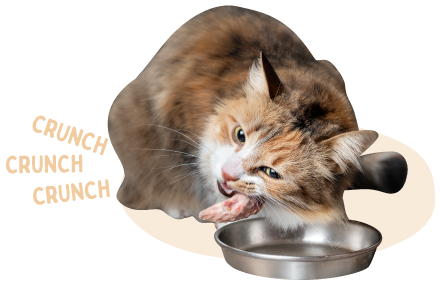
Hands up if you don’t feed your cat raw bones – don’t worry, you’re not alone. Many cat owners are unsure whether bones are safe or necessary for cats. But here’s the truth: when introduced safely, raw bones can be an incredibly beneficial part of a cat’s diet, supporting their dental health, mental wellbeing, and even gut health.
Let’s explore why bones matter, which ones are safe, and what to do if your cat is a little… fussy.
Why Feed Raw Bones to Cats?
Cats are obligate carnivores. This means they rely on animal protein to meet their nutritional needs, and in the wild, they wouldn’t just eat meat. They’d eat the whole prey: bones, organs, connective tissue and all!
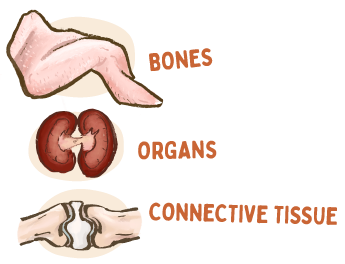
Incorporating raw bones into your cat’s diet taps into this natural biology and provides:
Dental health
The physical act of chewing helps remove plaque and tartar, which is vital in preventing periodontal disease. A landmark study in dogs and cats found that diet has a major influence on oral health, with raw meaty diets associated with improved dental outcomes compared to dry food diets (Gawor et al., 2006).
Jaw strength
Chewing strengthens jaw muscles and supports oral function.
Mental enrichment
For indoor cats especially, chewing mimics hunting behaviours and relieves stress. In fact, chewing and tearing mimic natural predatory behaviour, which research shows is critical for feline mental stimulation and welfare (Ellis, 2009).
Gut support
Bone marrow, cartilage, and minerals in raw bone nourish the gut lining and contribute to a healthy microbiome.
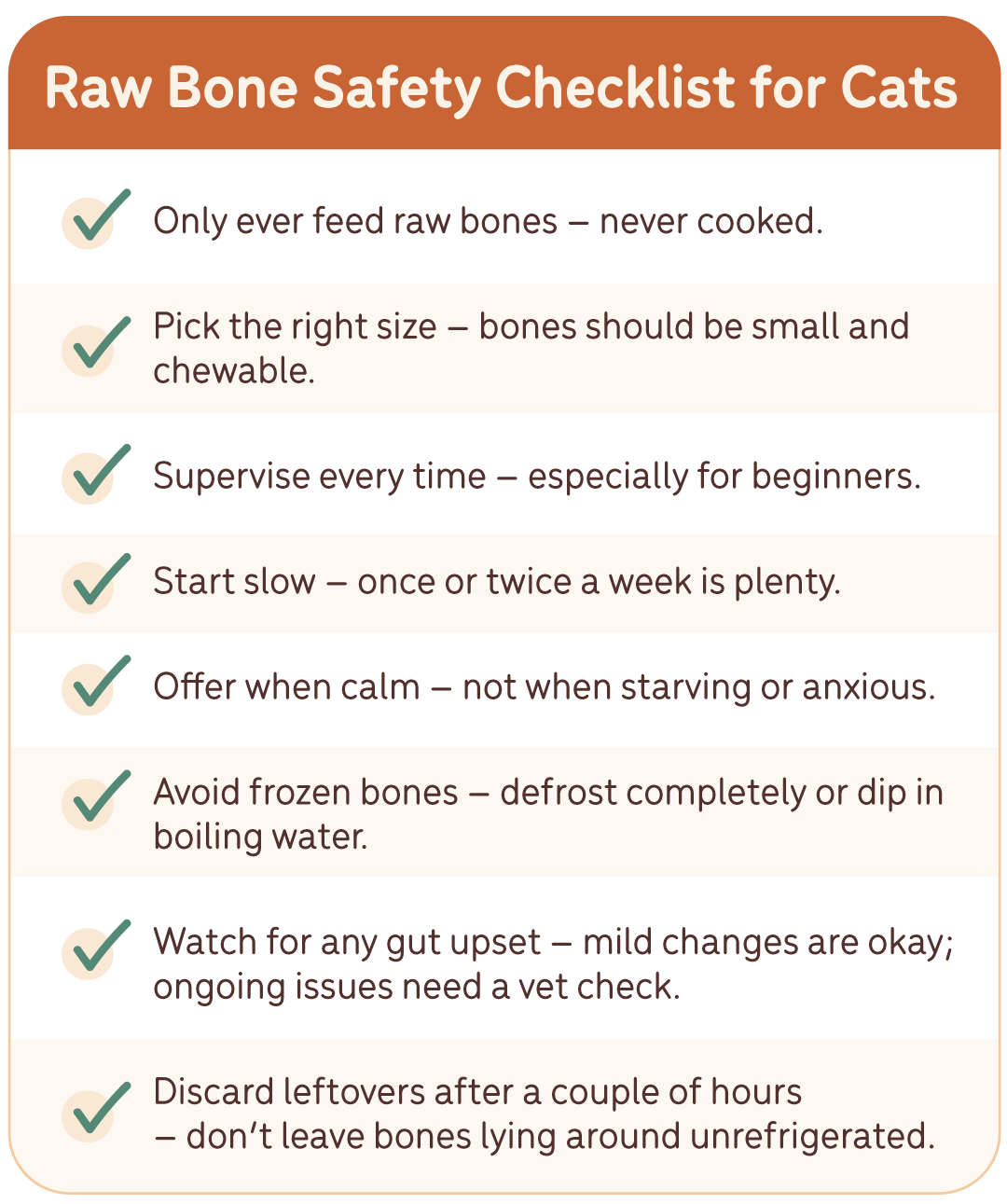
Which Raw Bones Are Best for Cats?
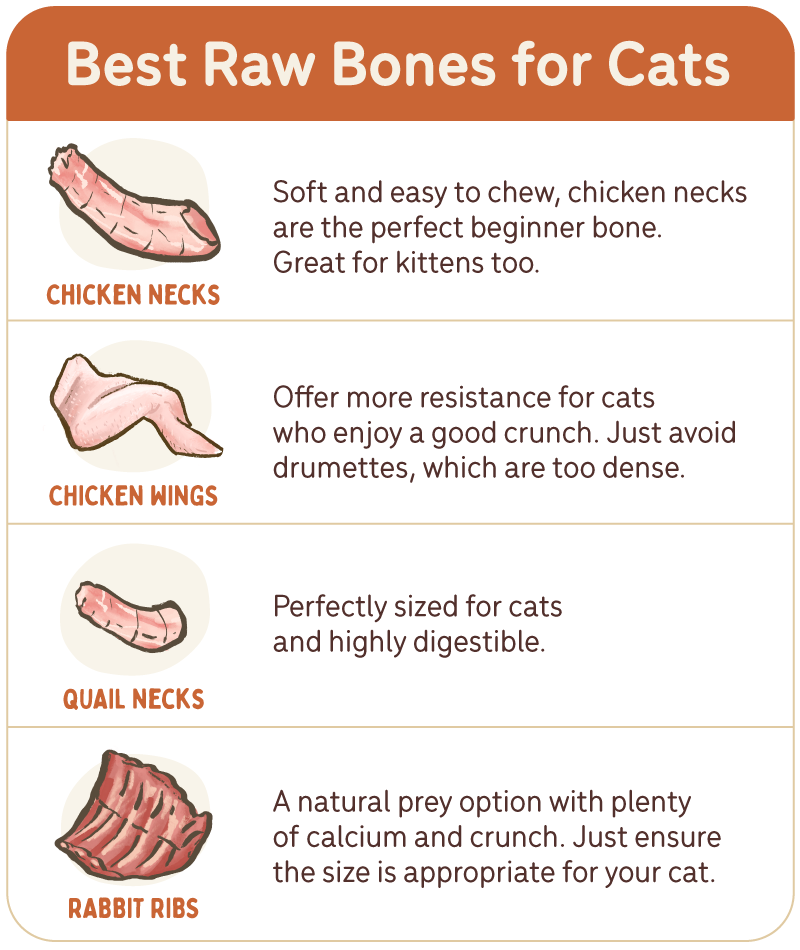
Not all bones are created equal. The safest options for cats are small, soft, raw bones that mimic the prey items they’d consume in the wild. Never feed cooked bones as they can splinter and cause serious internal injury.
How Often Should You Feed Raw Bones?
For most adult cats, offering a raw bone two to three times per week is ideal (but you can feed daily!). If your cat has never chewed a bone before, begin with once a week while monitoring how they go. Kittens can be introduced to bones as young as weaning, this helps them grow up comfortable with chewing.
And remember, it’s not all or nothing. Some cats may never take to whole bones, and that’s okay. The goal is to support natural behaviours and provide nutrition in the most appropriate form for your cat’s needs.
What If My Cat Just Won’t Eat Bones?
Some cats, particularly those raised on dry food, simply won’t chew bones. But don’t worry, there’s a workaround.
Big Dog’s raw meals for cats contain minced bone as part of their balanced formulation. This provides the calcium, phosphorus, marrow, and collagen your cat needs, without relying on chewing. It’s the next best thing to whole prey and far superior to kibble in terms of bioavailability and species appropriateness.
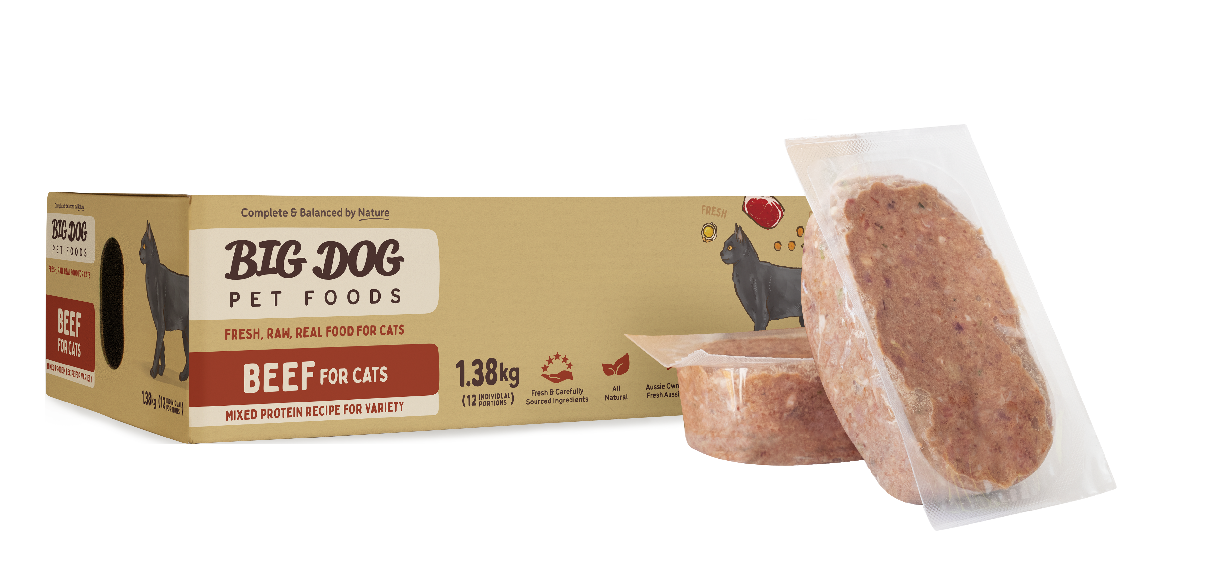
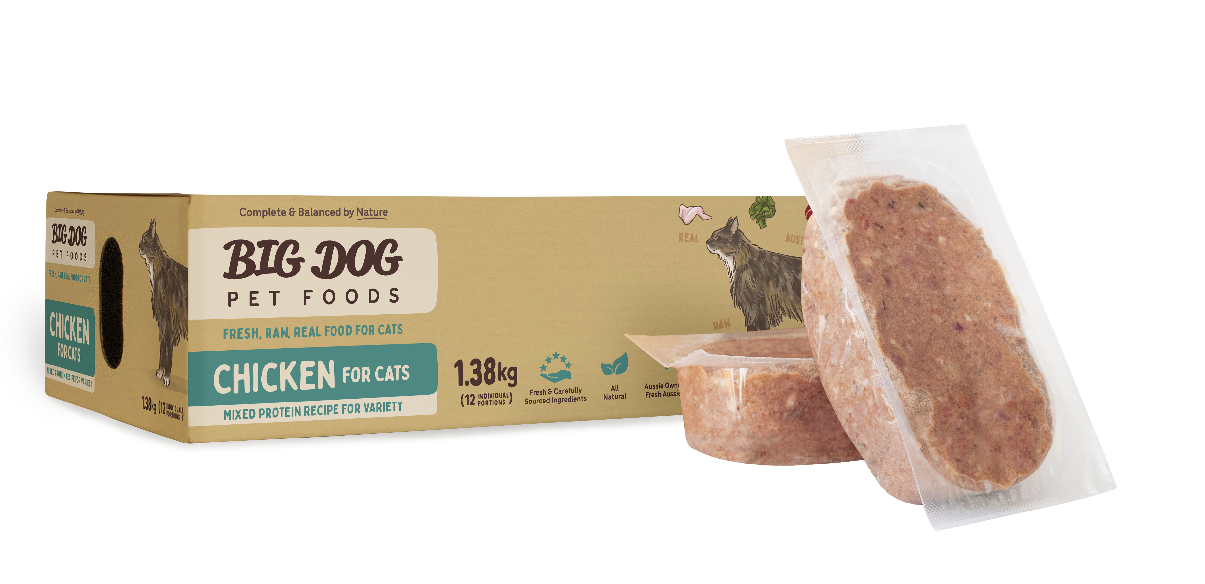
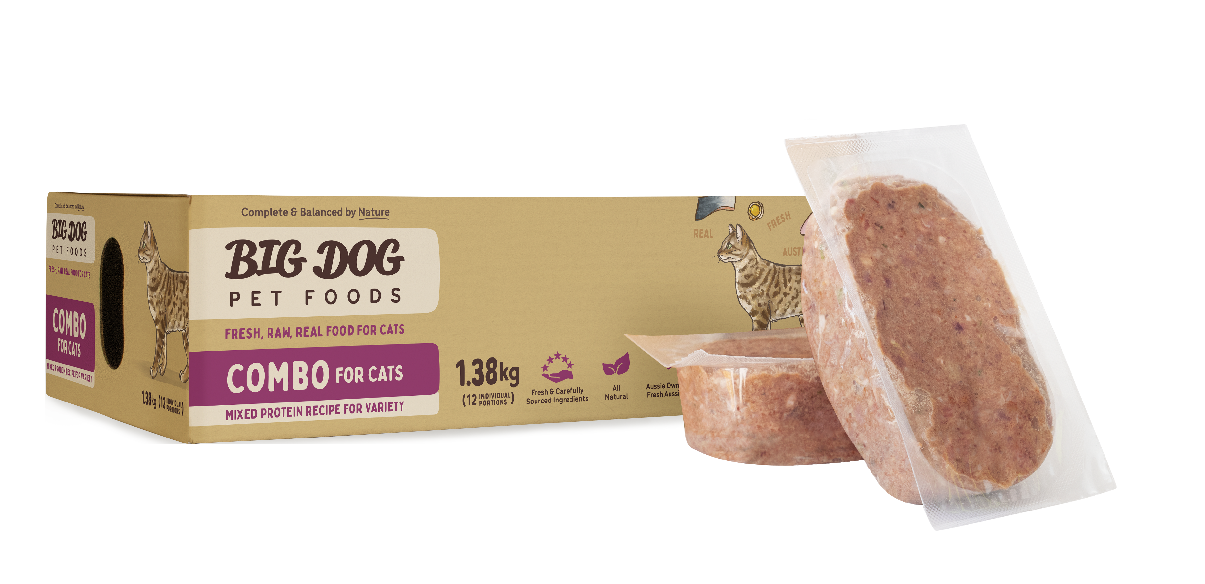
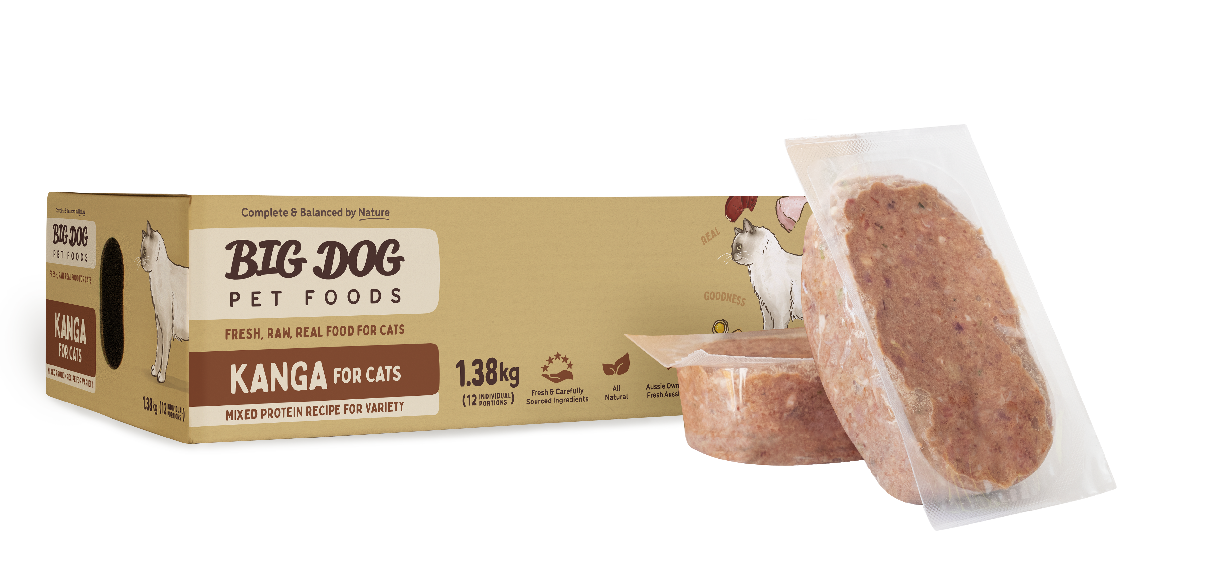
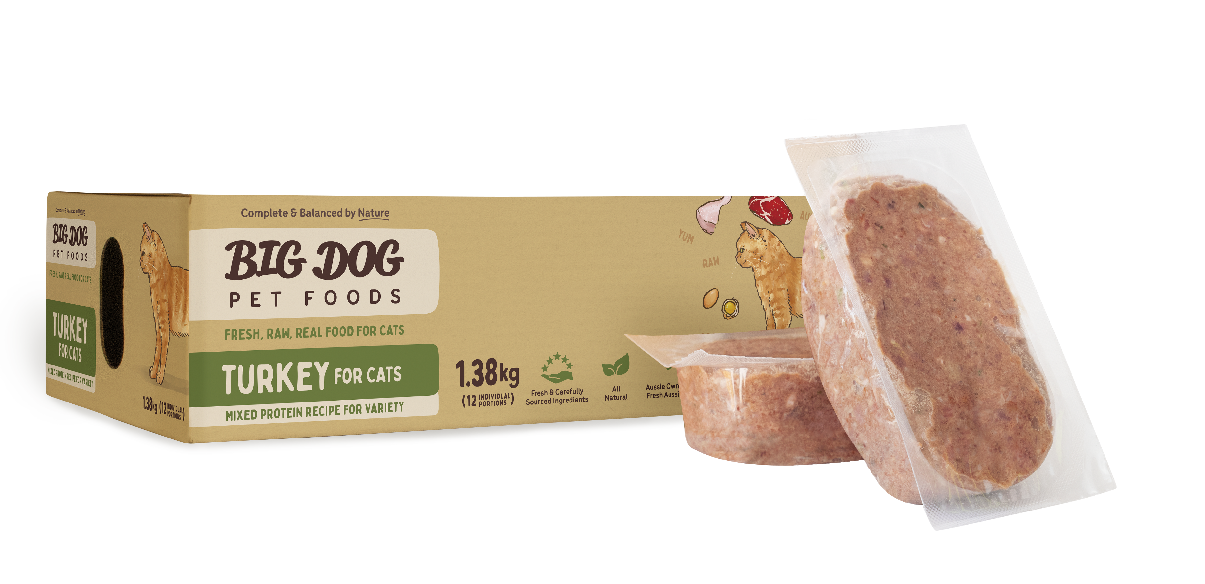
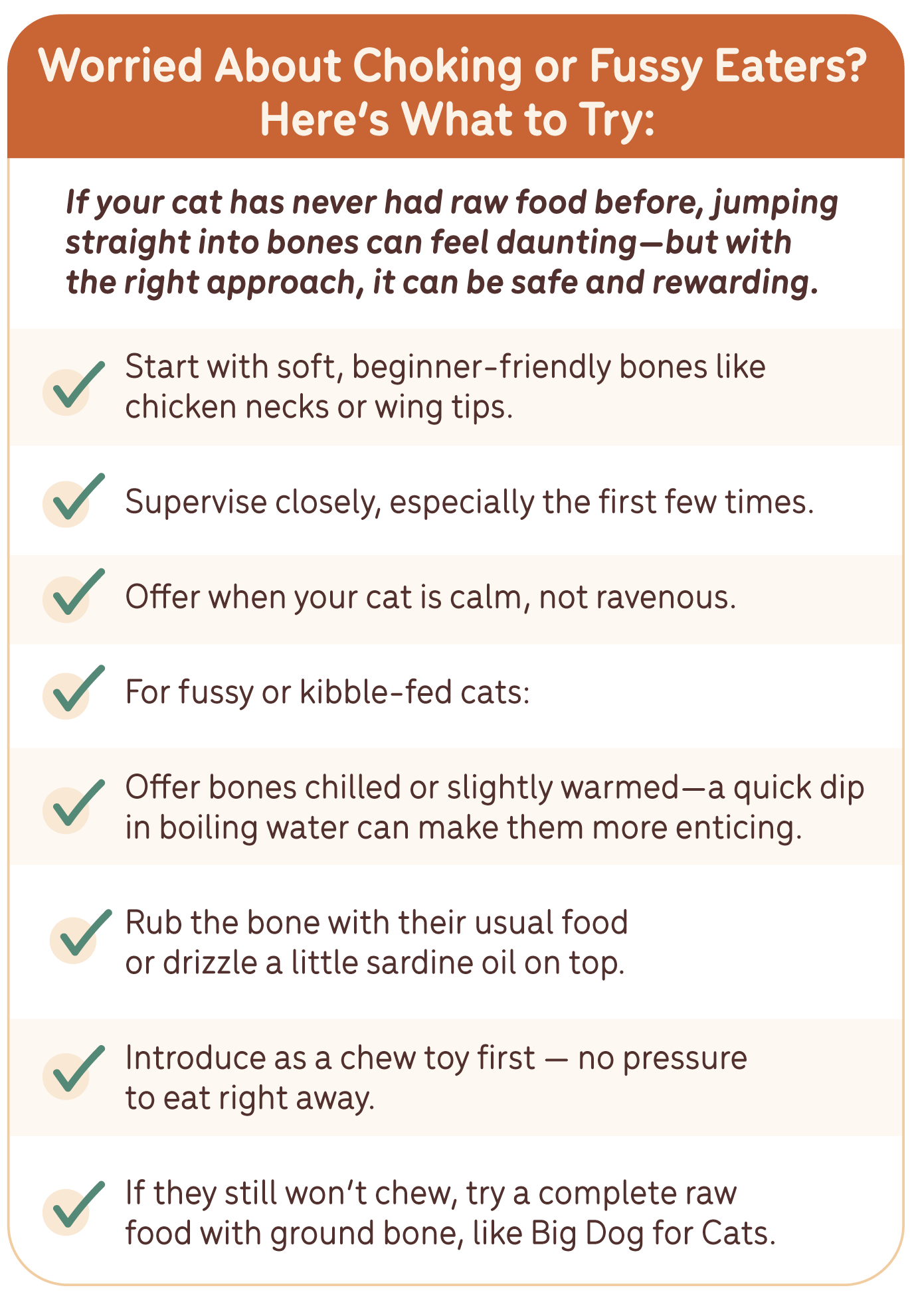
The Final Word: Honour the Carnivore Within
Chewing bones is more than a novelty, it’s a return to what’s biologically normal for cats. Whether your feline friend gnaws on a chicken neck twice a week or simply eats a minced raw diet that includes bone, you’re supporting better dental health, a stronger gut, and a happier, more balanced animal.
Start slow, observe your cat, and enjoy the process. Every cat is different, but all of them deserve a diet that supports who they are: hunters, chewers, carnivores.
About the Author - Dr. Nicole Rous

Dr. Nicole Rous completed her degree with Honours from the University of Sydney in 2008. She initially worked in the UK before returning to small animal practice in Melbourne, Australia. Dr. Nicole has a keen interest in animal reproduction and has been granted Membership with the Australian and New Zealand College of Veterinary Scientists in this specialty. She is also passionate about complementary therapies such as massage and enjoys discussing ways to enhance pets' overall well-being and quality of life.
In August 2021, Dr. Nicole joined the Mont Albert Veterinary Surgery team as a director and continues to provide exceptional care to her patients. She is dedicated to utilising her knowledge and experience to assist pets in living longer, healthier, and happier lives.
Dr. Nicole's commitment to providing natural and holistic health practices for pets inspired her to establish Shy Tiger, a company that offers natural pet products made from premium ingredients sourced primarily from Australian farms and producers. Her expertise in natural health practices and dedication to providing excellent care to her patients make her a reliable partner for pet owners in Melbourne and beyond.
References
Ellis, S.L.H. (2009). Environmental enrichment: practical strategies for improving feline welfare. Journal of Feline Medicine and Surgery, 11(11), 901–912.
Gawor, J.P., Reiter, A.M., Jodkowska, K., Kurski, G., Wojtacki, M.P., & Kurek, A. (2006). Influence of diet on oral health in cats and dogs. Journal of Nutrition, 136(7 Suppl), 2021S–2023S.
